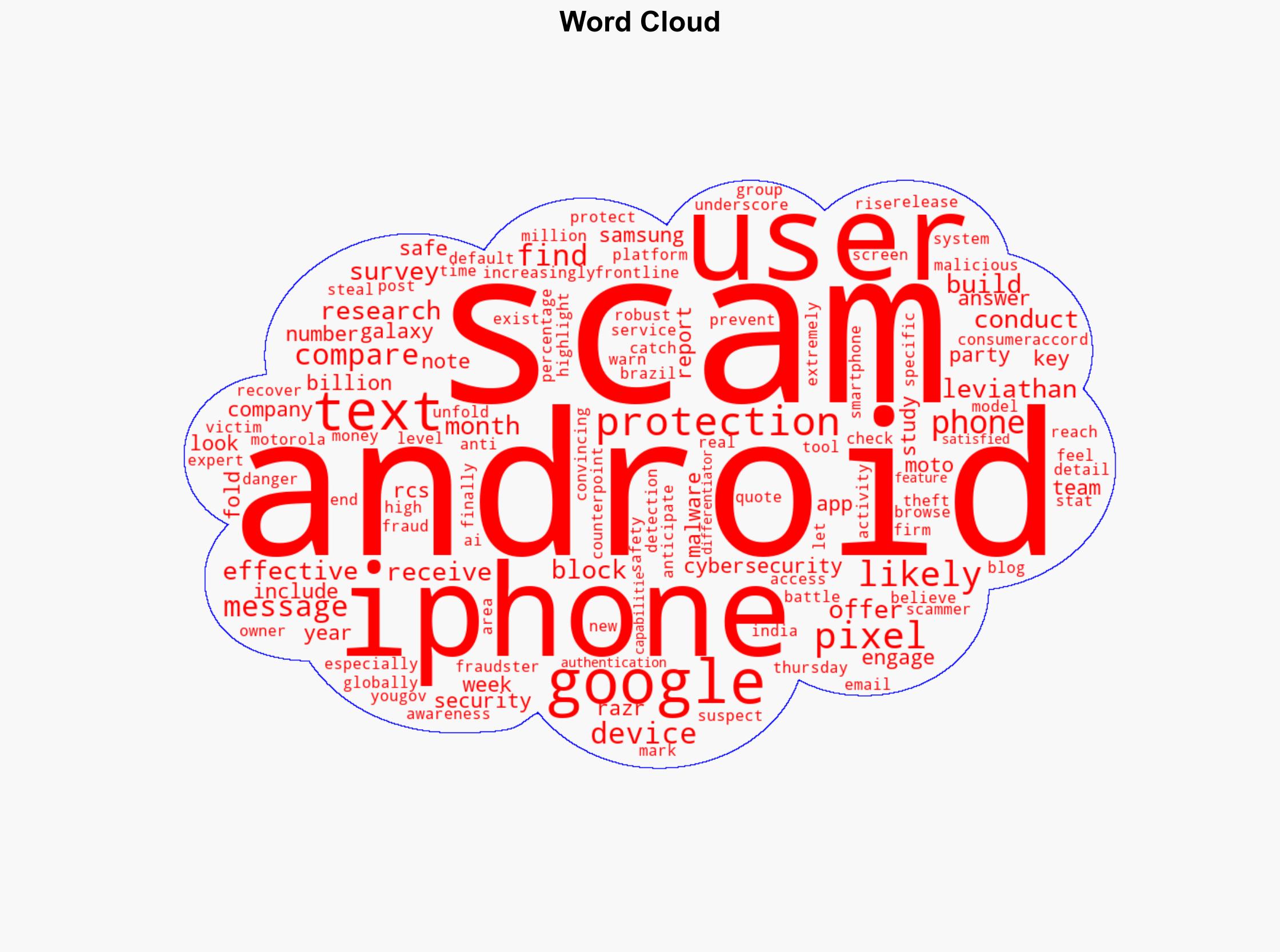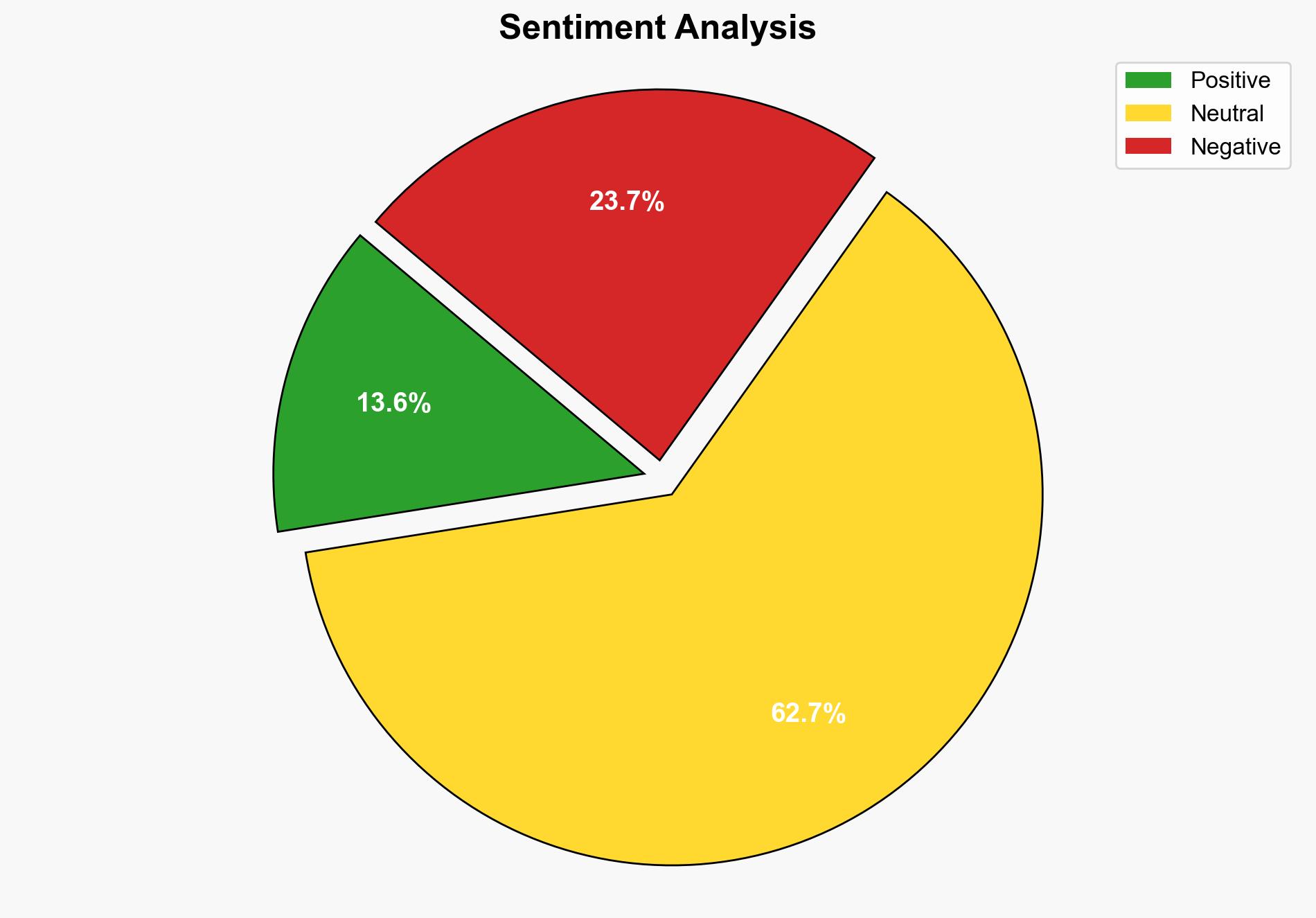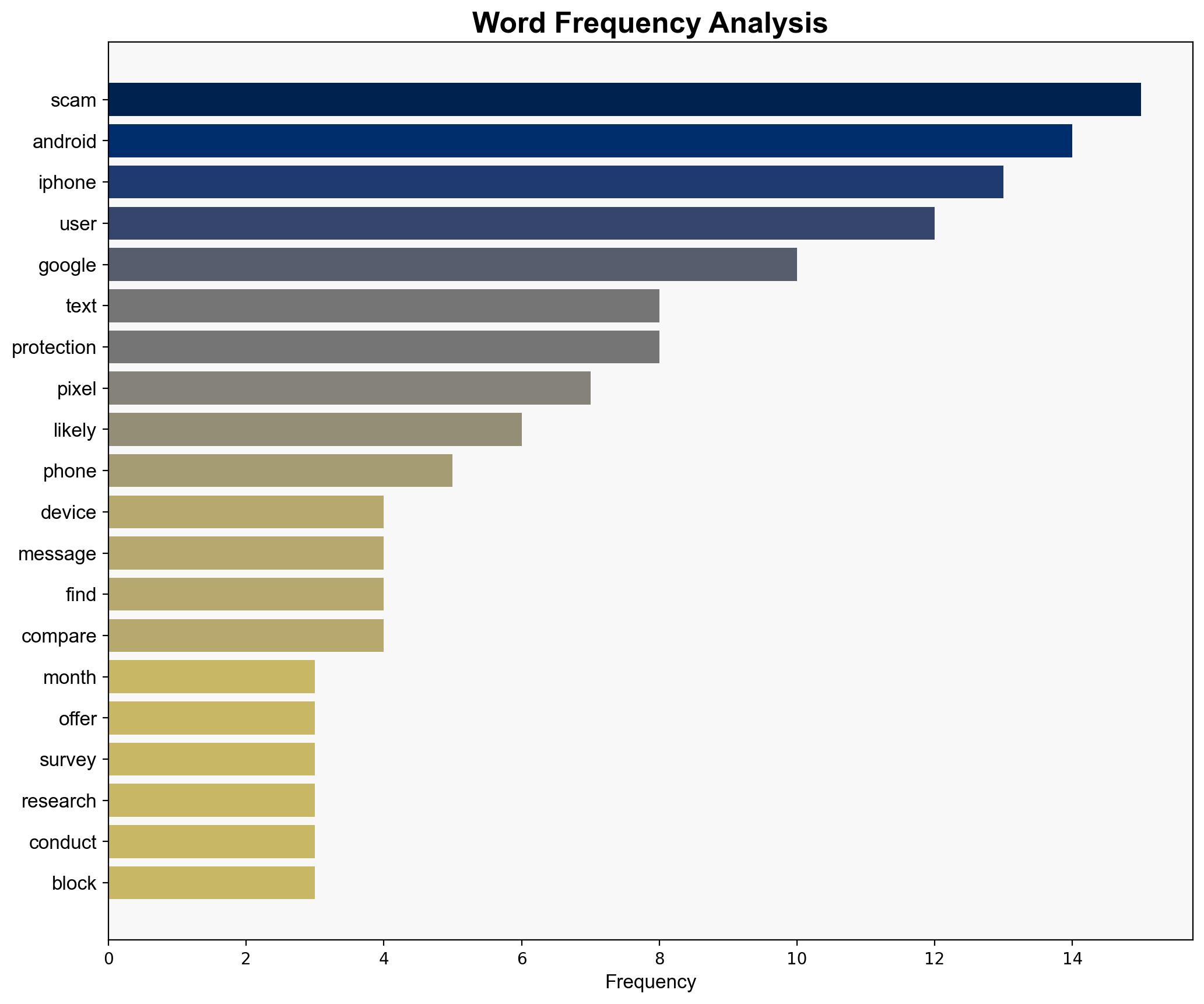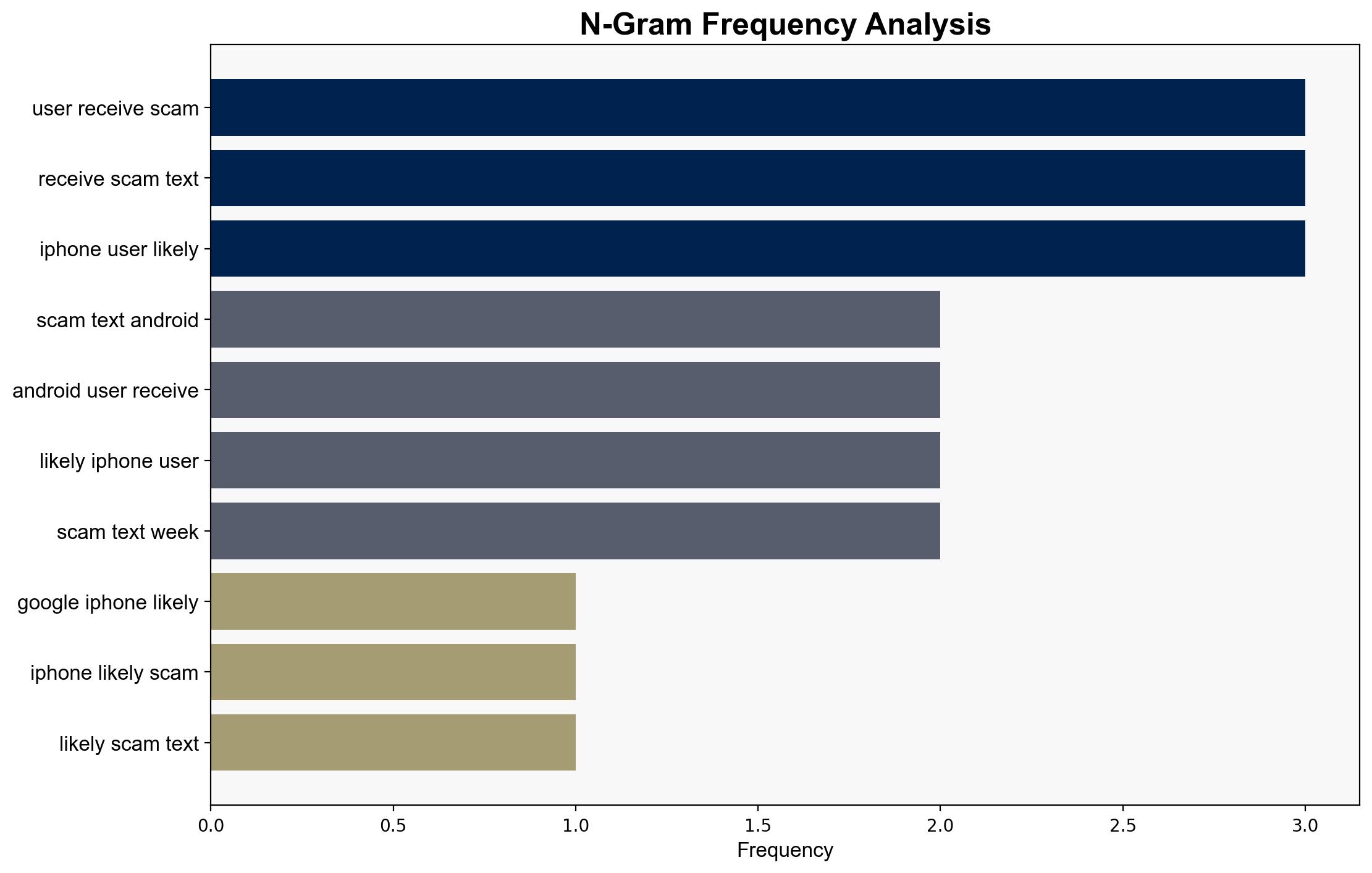Google Says iPhone More Likely To Get Scam Texts And Calls Than Android – BGR
Published on: 2025-10-30
Intelligence Report: Google Says iPhone More Likely To Get Scam Texts And Calls Than Android – BGR
1. BLUF (Bottom Line Up Front)
The analysis suggests that Google’s claim about iPhones being more susceptible to scam texts and calls than Android devices is primarily a strategic positioning to highlight Android’s security features. The hypothesis that Google’s report is a marketing maneuver is better supported. Confidence level: Moderate. Recommended action: Monitor for further developments in cybersecurity claims and potential impacts on consumer behavior.
2. Competing Hypotheses
1. **Hypothesis A**: Google’s report accurately reflects a genuine security advantage of Android devices over iPhones, based on independent research findings.
2. **Hypothesis B**: The report is primarily a strategic marketing effort by Google to enhance the perceived security of Android devices, particularly in light of competitive pressures from Apple.
Using ACH 2.0, Hypothesis B is better supported due to the timing of the report’s release coinciding with the end of Cybersecurity Awareness Month, and the involvement of third-party firms potentially aligned with Google’s interests.
3. Key Assumptions and Red Flags
– Assumptions: The assumption that third-party research is unbiased and comprehensive. The belief that Google’s AI tools are uniquely effective.
– Red Flags: Potential bias in research firms associated with Google. Lack of detailed data on the methodology of the studies cited.
– Blind Spots: The absence of Apple’s response or independent verification of the claims.
4. Implications and Strategic Risks
– **Economic**: Potential influence on consumer purchasing decisions, impacting market share.
– **Cyber**: Escalation in cybersecurity claims could lead to a competitive race in security features, benefiting consumers.
– **Geopolitical**: Minimal direct impact, but could influence global perceptions of tech security.
– **Psychological**: Increased consumer anxiety over device security, potentially leading to heightened demand for security features.
5. Recommendations and Outlook
- Monitor consumer response to the report and any shifts in market dynamics.
- Encourage independent studies to verify claims and provide balanced perspectives.
- Scenario Projections:
- Best Case: Increased competition leads to improved security features across all devices.
- Worst Case: Unsubstantiated claims lead to consumer distrust in tech companies.
- Most Likely: Temporary market fluctuations with minimal long-term impact.
6. Key Individuals and Entities
– Google
– Apple
– Leviathan Security Group
– Counterpoint Research
– YouGov
7. Thematic Tags
national security threats, cybersecurity, consumer technology, market competition





